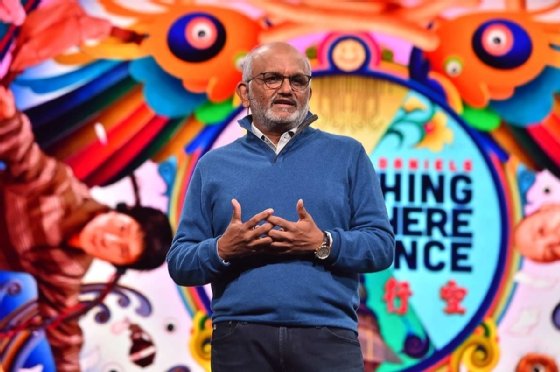
Adobe advances GenStudio AI for video, Firefly, and ad prep
Adobe builds more agentic AI, other features into GenStudio; also introduces Firefly Foundry to host complex AI models for large customers.
Adobe released and previewed several AI and Firefly features inside and outside of its GenStudio suite. These features are aimed at various user groups, including marketers, design creatives and video editing professionals.
An updated Firefly Creative Production for Enterprise web app targets production pros. It adds features for bulk resizing and reframing content assets, such as removing backgrounds for thousands of files at once. A workflow builder makes bulk editing and formatting processes repeatable, and the updated app also includes more than 20 prebuilt actions for AI bulk processing, such as object compositing, color adjustment and branding checks to confirm images follow user guidelines.
For marketers, the Content Production Agent in Adobe GenStudio for Performance Marketing, in beta, interprets marketing briefs and produces content according to the goals of a campaign. The tool can generate content for many different channels, including email, web and social media ads.
Adobe unveiled GenStudio for Performance Marketing integrations with numerous digital ad platforms, including Google, TikTok, Amazon Ads, LinkedIn and others. These integrations enable ad activations from within GenStudio. Some of these integrations are available now, others are in beta, and others will be in beta soon, according to Adobe.
Adobe Firefly Services APIs include tools for video editors to automate and accelerate creative workflows, such as reframing and compositing, that now require hours of manual work. For large enterprises, Adobe will offer deep training and hosting of AI video models with Firefly Foundry. It builds on -- and is not to be confused with -- Firefly Custom Models, which enable users to train Firefly with their own visual assets and Firefly's, to create marketing collateral with AI.

Content authenticity in the spotlight
In beta is Adobe Content Authenticity API, which bulk embeds digital credentials -- badges -- in content, which can be verified as coming from a particular brand or company. The APIs and badges are a logical extension of the Content Authenticity Initiative, an association started by Adobe, The New York Times and then-Twitter in 2019, which later partnered with Project Origin, an initiative led by Microsoft, the BBC and others.
Digital credentials are needed now more than ever in an online world where everyone has access to tools that can generate deepfakes with AI, said Varun Parmar, general manager of Adobe GenStudio and Firefly for Enterprise.
In the next year, Parmar believes video content credentials will appear more frequently in clips on platforms such as Google, LinkedIn, TikTok and others, as brands will want to distinguish their real ads and other media from the proliferating inauthentic content. Large Adobe customers such as Coca-Cola are planning to embed the badges.
"If you don't have this badge of authenticity, then I need to question, 'Is this real or not?'" Parmar said. "That's what we expect will happen."
Adobe, Google deepen partnership
Many different options exist for AI video content creation, such as Sora, Midjourney and a host of others. But Adobe's remaining true to its goals of staying "commercially safe" -- that is, respecting copyright in its AI model training -- and giving users the ability to build their brand guardrails into their workflows has inspired loyalty among creatives who know they can integrate AI tools safely into their work, said Liz Miller, analyst at Constellation Research.
"Adobe focused on the work, not the output, because for Adobe, it's about the outcome," Miller said. "When we look at AI, a lot of vendors out there mistake the output for AI's outcome. Every single one of us who has been in this role knows there is a line of demarcation where you stop playing and you get to work. Adobe lets you do a little bit of both but really leans into the get-to-work part."
Adobe also said it had struck a new partnership deal with Google. With it, Adobe will access Google's AI models, including Gemini, Veo, Imagen and others, to be integrated into Adobe Firefly, Photoshop, Express and Premiere. Enterprise customers of Adobe Firefly Foundry will get access to Vertex AI models and be able to customize them with proprietary data to build AI models to generate content experiences at scale.
Adobe showed its new tools during its MAX user conference, which is being held October 28-30 in Los Angeles.
Don Fluckinger is a senior news writer for Informa TechTarget. He covers customer experience, digital experience management and end-user computing. Got a tip? Email him.






